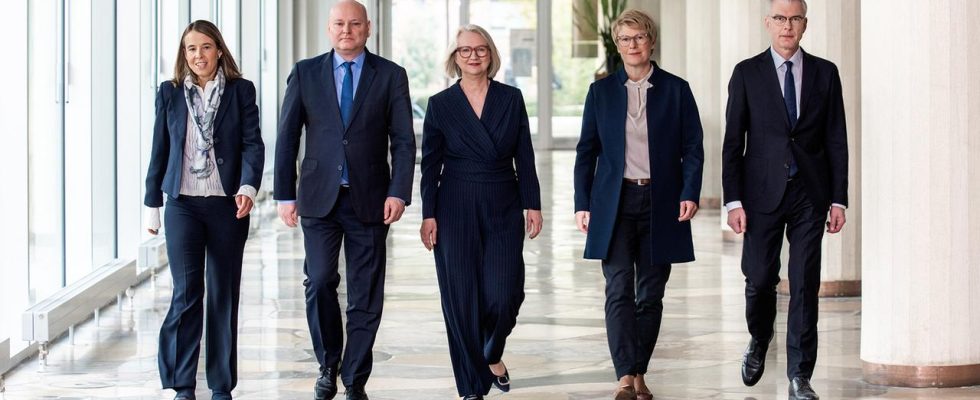60 years ago today, the then Federal President Lübke signed the law on the formation of an “Advisory Council for the Assessment of the Overall Economic Situation”. Since then, the economic experts have been advising federal politics.
Economics Minister Ludwig Erhard had campaigned for it, Chancellor Konrad Adenauer was skeptical – like many politicians after him. In the end, Erhard prevailed and the “Council of Experts for the Assessment of the Overall Economic Situation” began its work.
The economics minister’s motive at the time: Politics needed independent advice from economists. Erhard was convinced of this – partly because of a certain skepticism about politics itself: “The addiction of governments and parliaments to carry out popular measures and to do justice to all group wishes ultimately leads to the destruction of the democratic order.”
“Stubborn” Ludwig Erhard prevails
Independent Council: That also means criticism that politicians don’t always like to hear. The first Chancellor also tried to slow down his Economics Minister: “Konrad Adenauer is said to have warned him at the time: ‘Erhard, do you want to put a louse in your fur?'”, Angela Merkel quoted Adenauer as saying at the 50th anniversary of the Council of Economic Experts. And Olaf Scholz now said on his 60th birthday: “Historically it was a stroke of luck that Ludwig Erhard was such a stubborn person.”
Would Willy Brandt and Helmut Schmidt have said the same thing? In the 1970s, the German Council of Economic Experts took on what was then Keynesian economic policy – and instead of focusing on demand, it focused on structural problems, reminds Stefan Kooths from the Kiel Institute for the World Economy: “Tackling them and creating the basis for a viable growth model, that was certainly the greatest success of the Advisory Council in the 1970s and beyond.” Because what the economists said became politics in the 1980s under CDU Chancellor Helmut Kohl.
Notorious for clear words
Later, the Social Democrat Gerhard Schröder followed the advice of the experts: Many parts of Agenda 2010 came from them, which is why the Regensburg economist Wolfgang Wiegard presented a report in 2003 like this: “If the federal government, like last year, also this year from our report parts, we are also very hopeful that Germany will be able to get back on a higher growth path.”
But there was always harsh criticism. For example, in 2009, when then-Chairman Wolfgang Franz attacked the coalition agreement of the black-yellow coalition: “The comments on the consolidation of public budgets are general platitudes and are in no way convincing,” Franz said at the time.
No policy against economic ratio
Other topics that are repeatedly addressed by the Council of Experts, such as securing pensions, are not well received by politicians. “It is often the case that in the short term the political actors only take what they like from the report and what seems to prove them right,” says the Kiel economist Kooths. “In fact, at the end of the day, the advice also has the most leverage, because you can’t make politics against economic rationality in the long run.”
In other words: even if it sometimes takes a while – when economic problems become too big, you still listen to the advice. Especially when the economists manage to initiate public debates, as the current chairperson of the council, Monika Schnitzer, emphasises:
We’re not just there for politics, we’re also supposed to inform the public, because we get a lot of attention, and that should be the case.

